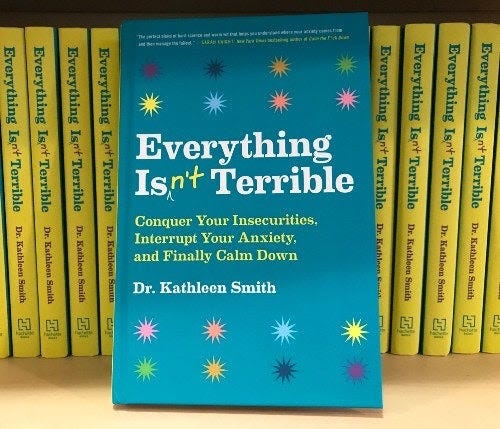When Questions Help More Than Answers
What we lose when we grab the quickest explanations.
We live in an answer-focused society. There’s no shortage of experts telling us how to make money, lose weight, get more sleep, have a better marriage, or just be happier.
Answers are a convenient way to manage anxiety. You might feel calmer when you get a diagnosis. A family calms down when they have a scapegoat to blame. And it’s reassuring when your therapist hands you a worksheet and says, “Just do this.”
I think answers fail us when they shut down our thinking. When they don’t allow us to be curious. These are answers like:
My relationship will only get better if my partner stops doing X.
I’m an anxious person and there’s no changing that.
I’m burned out because people expect too much of me.
I have low self-esteem because my father was too critical.
My relationships have failed because I’m unlovable.
Cause-and-effect thinking fails to capture the complexity of human relationships. We’re quick to slap labels on ourselves and others, because seeing the bigger picture, the patterns of actions and reactions, takes a lot more effort and discomfort. It’s easier to ask, “Why?” and fill in the blank with the most obvious answer.
Here are some non-why questions that can jump-start your thinking.
What is it that I’ve been trying to do differently lately?
When have I been on autopilot, rather than using my best thinking?
What are problems I faced a year ago that I managed to solve?
What are worries I had a year ago that weren’t rooted in reality?
What is the evidence of my growing maturity?
What is the evidence of my lack of maturity?
What wisdom have I been able to activate in intense situations?
What wisdom has been useful to me in family crises? In work challenges?
When have I shifted from blaming others to focusing on my own responses?
Where has it been hard to zoom out and see the bigger picture?
What is my next frontier for working on my own maturity?
Questions like these serve a few purposes.
They strengthen your own ability to evaluate yourself. To see the reality of your functioning, rather than shifting between irrational self-criticism and ego-inflation. This is a mark of maturity—the ability to give yourself credit for wins but also see the moments where emotions blurred your best thinking.
They keep you from trying to control others. When we don’t ask good questions, we tend to rely on other’s reactions to evaluate ourselves. This is how we end up chasing after approval or attention, a truly maddening game.
They can steer you away from fear or shame. For survival purposes, your brain is very good at reminding you of all the dumb stuff you did when you were 22. Or predicting the million ways you could blow a new opportunity. But all those days where you showed up, paid attention, and grew up a little? Those moments are way back in storage. Only thoughtful questions can dig them up and remind you of your own capability.
Questions are how we build a self. They’re how we fashion our own operating instructions, rather than anxiously borrowing them from experts or loved ones. They’re how we manage to shift when one solution just isn’t working. If one person is asking good questions, the whole family, or the whole organization, will benefit.
So the next time you’re feeling anxious, try sitting on your hands for a minute when you want to grab the quickest answer. Start with questions, and you might find that your own thinking is your greatest resource.
News from Kathleen
I was on the Guy Shrink podcast talking about responding to life’s curveballs.
On August 24th, I’ll be speaking at the Family Systems Institute’s annual conference on triangles.
Want to support my free newsletter? Buy me a coffee to keep the thoughts flowing.
Want to read more of my writing? You can read old newsletters at my website, or buy my book Everything Isn't Terrible from Amazon, Barnes and Noble, Indiebound, or your local bookstore (best option).
Want a free anxiety journal with the book? Calming Down & Growing Up: A 30 Day Anxiety Journal includes thirty daily prompts to help you reflect on and respond to your anxious behaviors. To receive a copy, just email me your receipt of Everything Isn’t Terrible.
Email me if you’re interested in Bowen theory coaching or want me to speak to your group or workplace. Follow me on Twitter, Facebook, or Instagram.
Want to learn more about Bowen theory? Visit the Bowen Center’s website to learn more about their conferences and training programs.




Ooh solution focused therapy! Parks the issues in a bag beside if needed but looks forward to beyond the problem and what happens in the solution